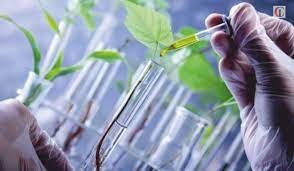Biotechnology, a field at the intersection of biology and technology, has revolutionized various industries, including agriculture. Through the manipulation of living organisms, biotechnology has brought about significant changes in the way crops are cultivated, pests are controlled, and environmental sustainability is achieved in agricultural practices.
Introduction to Biotechnology in Agriculture
In recent decades, biotechnology has emerged as a powerful tool in agricultural development, offering innovative solutions to address the growing challenges of food security, climate change, and sustainable farming practices. By harnessing the power of genetic engineering, biotechnology has enabled scientists to modify crop traits, enhance crop resistance to pests and diseases, and improve overall crop productivity.
Historical Background of Biotechnology in Agriculture
The roots of biotechnology in agriculture trace back to ancient practices such as selective breeding and fermentation. However, the modern era of agricultural biotechnology began in the 20th century with the advent of techniques like recombinant DNA technology and gene editing. These breakthroughs paved the way for the development of genetically modified organisms (GMOs) and other biotechnological applications in agriculture.
Modern Applications of Biotechnology in Agriculture
Genetic Engineering of Crops
One of the most prominent applications of biotechnology in agriculture is the genetic engineering of crops. Through techniques like gene splicing and transformation, scientists can introduce desirable traits into crop plants, such as resistance to pests, tolerance to herbicides, and improved nutritional content.
Biotechnology in Pest Control
Biotechnological approaches have also revolutionized pest control in agriculture. Biopesticides derived from naturally occurring microorganisms offer environmentally friendly alternatives to chemical pesticides, reducing the reliance on synthetic chemicals and minimizing the risk of harmful residues in food products.
Bioremediation in Agriculture
Biotechnology plays a crucial role in addressing environmental challenges associated with agriculture, such as soil degradation and pollution. Bioremediation techniques utilize microorganisms to degrade pollutants, detoxify contaminated soils, and restore ecosystem health, thereby promoting sustainable land management practices.
Benefits of Biotechnology in Agriculture
Increased Crop Yield
By enhancing crop resilience and productivity, biotechnology contributes to increased crop yields, ensuring food security and economic stability for farmers and communities worldwide.
Enhanced Nutritional Content
Biotechnological interventions have led to the development of biofortified crops with improved nutritional profiles, addressing micronutrient deficiencies and improving public health outcomes, especially in developing countries.
Reduced Environmental Impact
The adoption of biotechnology in agriculture has the potential to reduce the environmental footprint of farming practices by minimizing the use of chemical inputs, conserving natural resources, and mitigating the impacts of climate change on crop production.
Challenges and Controversies Surrounding Biotechnology in Agriculture
Despite its numerous benefits, biotechnology in agriculture is not without its challenges and controversies. Concerns about the safety of GMOs, potential risks to biodiversity, and socio-economic implications have fueled debates surrounding the ethical, environmental, and regulatory aspects of biotechnological innovations in agriculture.
Regulations and Policies Governing Biotechnology in Agriculture
To address the complex issues surrounding biotechnology in agriculture, governments and regulatory agencies have implemented stringent regulations and policies to ensure the safety, efficacy, and ethical implications of biotechnological products and practices. These regulations govern the research, development, cultivation, and marketing of genetically modified crops and other biotechnological innovations in agriculture.
Future Prospects of Biotechnology in Agriculture
Looking ahead, biotechnology is poised to play an increasingly significant role in shaping the future of agriculture. Advances in gene editing technologies, precision agriculture, and synthetic biology hold promise for addressing emerging challenges in food production, environmental sustainability, and resilience to climate change.
Conclusion
In conclusion, the impact of biotechnology in agriculture is profound and multifaceted, offering solutions to some of the most pressing challenges facing global food systems. While biotechnological innovations have the potential to revolutionize agriculture and improve livelihoods, it is essential to address the ethical, environmental, and socio-economic considerations to ensure that these technologies are deployed responsibly and sustainably.







